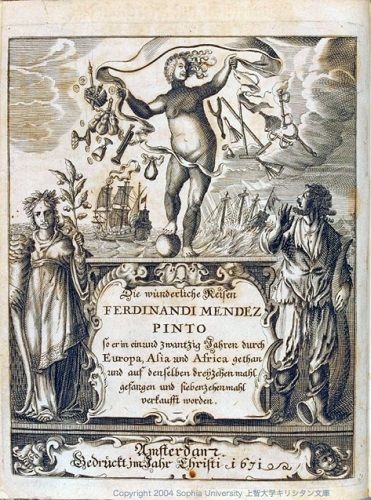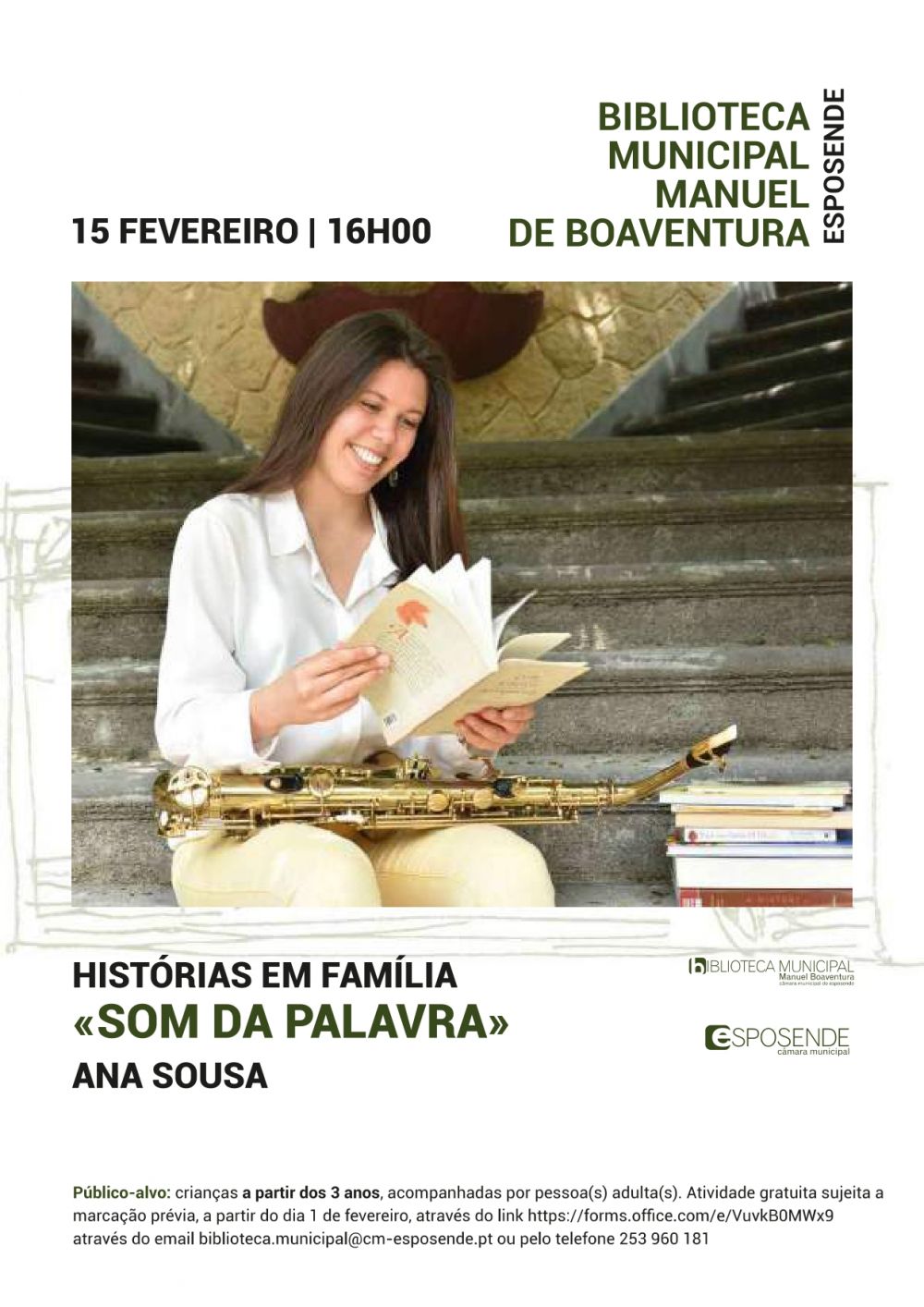Obras de referência da cultura portuguesa
"PEREGRINAÇÃO"
de FERNÃO MENDES PINTO
Análise de Miguel Real
Tradução: Alexandra Leitão

ANTI – OS LUSÍADAS
Peregrinação, publicado em 1614, de Fernão Mendes Pinto (1510? – 1583), escrito entre 1569 e 1578, no Pragal, Almada, após o regresso do autor a Portugal, constitui-se como o mais completo livro de memórias dos feitos dos portugueses no Oriente em tempo de desmoronamento do Império. Memórias reais e memórias fabulosas, é de grande dificuldade destrinçar com acerto, passo a passo, em Peregrinação, entre as cenas genuinamente ficcionais e o horizonte das verdadeiras vivências do autor ao longo de 21 anos de estadia no Oriente, entre a costa da China, Birmânia, Japão, Sião, as Molucas e o arquipélago de Sunda, como soldado, diplomata, mercador, pirata e membro da Companhia de Jesus durante dois anos.
A folha de rosto da primeira edição destaca três elementos que, conjugados harmoniosamente, nos dão conta do real estatuto de Peregrinação no seio da cultura portuguesa: primeiro, o título, simbolizando o duplo uso popular da palavra, tanto no sentido de “pioneiro”, antecipador de um costume posteriormente comum (como Francisco de Holanda e Rodrigues Lobo usam a palavra), quanto no sentido de longa viagem a terra longínqua, não a lugar santo (uso medieval da palavra), mas a lugar estranho, civilizacionalmente exótico e geograficamente distante, no qual o viajante se sente totalmente desenraizado; neste sentido, Peregrinação ilustra a longa errância do autor pelo extremo oriente do Império sem outro destino que o pessoal (enriquecimento). Não se trata já de descobrir, de intermediar civilizações, de mercadejar, de missionar, mas simplesmente de enriquecimento pessoal. Tão forte é este último sentido, que Fernão Mendes Pinto não esconde ter participado na profanação de túmulos de reis chineses na ilha de Calamplui, retratando a atividade de pirataria do português António de Faria, liberto de quaisquer compromissos com as ordens institucionais da Coroa ou o pensamento devoto da Igreja, praticando simplesmente a rapinagem. Nesta vertente, Peregrinação é o livro do pequeno português miúdo e pobre abandonado no Oriente, vocacionado mais para o furto e a crueldade sobre os povos do que para a missionarização ou a troca civilizacional. É neste sentido que Rebecca Catz designa Peregrinação como a narrativa anti-Os Lusíadas, opondo o seu conteúdo realista, existencial, vivido, ao conteúdo cruzadístico da epopeia de Camões.
Em segundo lugar, o primeiro subtítulo da folha de rosto informa-nos que Peregrinação “… dá conta de muitas e mui estranhas coisas que [o autor] viu e ouviu no reino da China…”, evidenciando, portanto, integrar-se na florescente literatura portuguesa de viagens dos séculos XVI e XVII, narrando costumes extraordinários, a que o autor ora adere, apontando-os como exemplo ético para os reinos cristãos, ou que ora contesta e calunia. Neste sentido, Peregrinação possui igualmente um carácter moralista, condenatório das práticas de rapinagem dos portugueses na Ásia, que, animalizando-se, atingem a mais alta degradação humana, em pleno naufrágio, da canibalização. Neste aspeto, salvam-se os membros da Companhia de Jesus, a que Fernão Mendes Pinto adere em momento de arroubo místico na sua terceira viagem ao Japão. É esta a terceira vertente expressa no texto da folha de rosto de Peregrinação: “E no fim dela [da narrativa] trata brevemente de algumas coisas e da morte do santo Padre mestre Francisco Xavier…”, numa demonstração, pelo exemplo, de como a Igreja poderia ter realizado a comunhão de povos sob a universal prática do bem comum. Mas é também neste aspeto que se evidencia a vertente satírica de Peregrinação, como uma fortíssima crítica ao estado do Império, não teoricamente, mas através da ostentação das chagas da imoralidade e da crueldade reinantes do Império. António José Saraiva, absolutizando esta vertente de Peregrinação, integra este livro no género pícaro, isto é, como a descrição da existência do “pobre diabo” do autor que, nas voltas do mundo e sempre obedecendo a ordens de amos, vai mostrando a real e verdadeira existência ignominiosa do Império. Maria Alzira Seixo, porém, realçando os aspetos positivos de Peregrinação, considera ser esta obra a grande perspetiva literária popular dos Descobrimentos, em contraste com Os Lusíadas (perspetiva erudita), o primeiro grande romance português de aventura localizado num quotidiano existencial concreto, findando com o ciclo das narrativas de cavalaria de estilo mítico e fabuloso, e o primeiro grande texto mundial do encontro entre o Ocidente e o Oriente.
PEREGRINAÇÃO by FERNÃO MENDES PINTO
ANTI - THE LUSIADS
Peregrinação by Fernão Mendes Pinto (1510?–1583) was published in 1614, having been written between 1569 and 1578 in Pragal, Almada, following the author’s return to Portugal. It is the most complete book of memoirs of the feats of the Portuguese in the East at the time when the Empire was collapsing. Real memoirs and fabulous memoirs, as it is difficult step by step to distinguish in Peregrinação what are genuinely fictional scenes and the horizon of the author’s real experiences throughout his 21 years’ sojourn in the East, between the coast of China, Burma, Japan, Siam, the Moluccas and the Sunda archipelago, as a soldier, diplomat, merchant, pirate and member of the Society of Jesus for two years.
The front page of the first edition highlights three things that, harmoniously combined, make us understand the real status of Peregrinação within Portuguese culture: first, the title, symbolising the popular double use of the word meaning both “pioneer”, anticipating what was to become common usage (as Francisco de Holanda and Rodrigues Lobo use it), and a long journey to a distant land, not to a holy place (medieval use of the word), but to somewhere foreign, exotic in terms of civilization and geographically distant, where the traveller feels totally uprooted. In this regard Peregrinação illustrates the author’s prolonged wanderings in the far east of the Empire with nothing on his mind but a personal objective (enrichment). It is no longer a question of discovery, mediation between civilisations, bargaining, conversion, but simply of personal enrichment. This feeling is so strong that Fernão Mendes Pinto does not hide the fact that he took part in the profanation of the tombs of the Chinese kings on the island of Calamplui, describing the piracy of the Portuguese António de Faria, free from commitments to the institutional orders of the Crown or the devout thinking of the Church, but engaged simply in looting. In this regard, Peregrinação is the book of the poor and humble Portuguese abandoned in the East, occupied more with theft and cruelty to others that with evangelisation or exchanges of civilisation. So it is that Rebecca Catz describes Peregrinação as an anti-Lusiad narrative, contrasting its realist, existential and experienced contents with the crusading spirit of Camões’s epic.
Secondly, the first sub-title of the front page informs us that Peregrinação tells “…of many and very strange things that [he] saw and heard in the kingdom of China…”, an attempt, therefore, to be part of the flourishing Portuguese travel literature of the 16th and 17th centuries, narrating extraordinary habits which the author either adopts, pointing them out as an ethical example for Christian kingdoms, or else contests and slanders. In this regard, Peregrinação is also moralist, condemning the Portuguese practice of looting in Asia, which reaches the nadir of human degradation and brutality during a shipwreck, when they engage in cannibalism. The only persons excepted here are the members of the Society of Jesus, which Fernão Mendes Pinto joins in a moment of mystic transport on his third trip to Japan. This is the third aspect set out in the text of the front page of Peregrinação: “And in the end [of the narrative] it briefly regards some things, and the death of the Holy Priest Francis Xavier…”, a demonstration, by example, of how the Church could have achieved a communion of the peoples by universally doing good. But it is also this aspect that highlights the satirical bent of Peregrinação, as an extremely strong criticism of the state of the Empire, not theoretically but by flaunting the wounds of immorality and cruelty reigning in the Empire. Making this aspect of the book absolute António José Saraiva, considers this book as picaresque, that is as the description of the “poor devil” of an author who goes round the world and always obeys orders from masters, showing the Empire’s real and ignominious existence. Maria Alzira Seixo, however, highlights the positive aspects of Peregrinação, and considers that this is the great popular view of the Discoveries, contrasting with The Lusiads (erudite view), the first great Portuguese adventure novel located in a concrete existential world ending the cycle of chivalrous tales of a mythical and fabulous style, and the first great world text of the meeting between West and East.
Obras de Referência da Cultura Portuguesa
projeto desenvolvido pelo Centro Nacional de Cultura
com o apoio do Ministério da Cultura

 Divulgue aqui os seus eventos
Divulgue aqui os seus eventos













